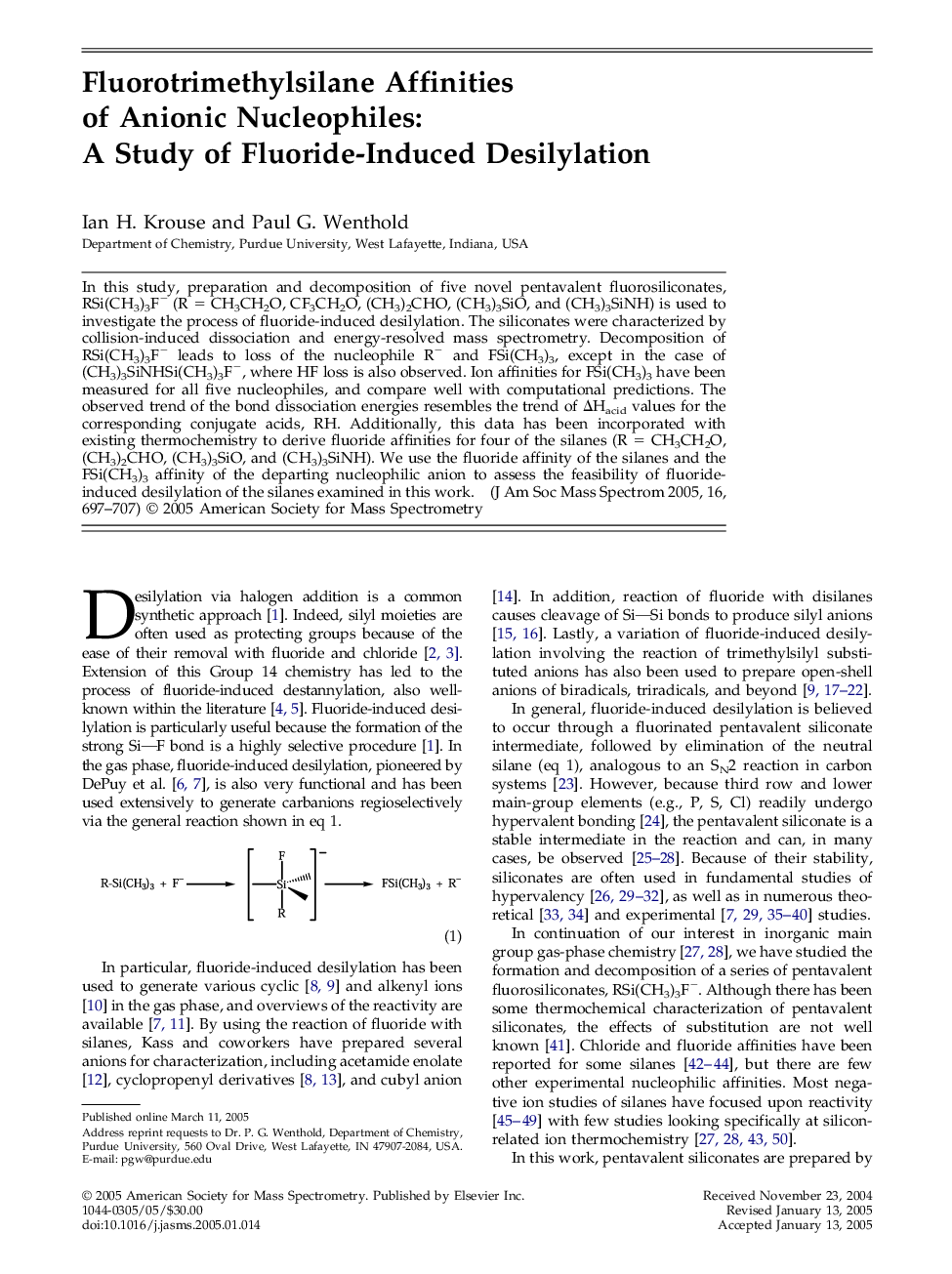| Article ID | Journal | Published Year | Pages | File Type |
|---|---|---|---|---|
| 10546595 | Journal of the American Society for Mass Spectrometry | 2005 | 11 Pages |
Abstract
In this study, preparation and decomposition of five novel pentavalent fluorosiliconates, RSi(CH3)3Fâ (R = CH3CH2O, CF3CH2O, (CH3)2CHO, (CH3)3SiO, and (CH3)3SiNH) is used to investigate the process of fluoride-induced desilylation. The siliconates were characterized by collision-induced dissociation and energy-resolved mass spectrometry. Decomposition of RSi(CH3)3Fâ leads to loss of the nucleophile Râ and FSi(CH3)3, except in the case of (CH3)3SiNHSi(CH3)3Fâ, where HF loss is also observed. Ion affinities for FSi(CH3)3 have been measured for all five nucleophiles, and compare well with computational predictions. The observed trend of the bond dissociation energies resembles the trend of ÎHacid values for the corresponding conjugate acids, RH. Additionally, this data has been incorporated with existing thermochemistry to derive fluoride affinities for four of the silanes (R = CH3CH2O, (CH3)2CHO, (CH3)3SiO, and (CH3)3SiNH). We use the fluoride affinity of the silanes and the FSi(CH3)3 affinity of the departing nucleophilic anion to assess the feasibility of fluoride-induced desilylation of the silanes examined in this work.
Related Topics
Physical Sciences and Engineering
Chemistry
Analytical Chemistry
Authors
Ian H. Krouse, Paul G. Wenthold,
